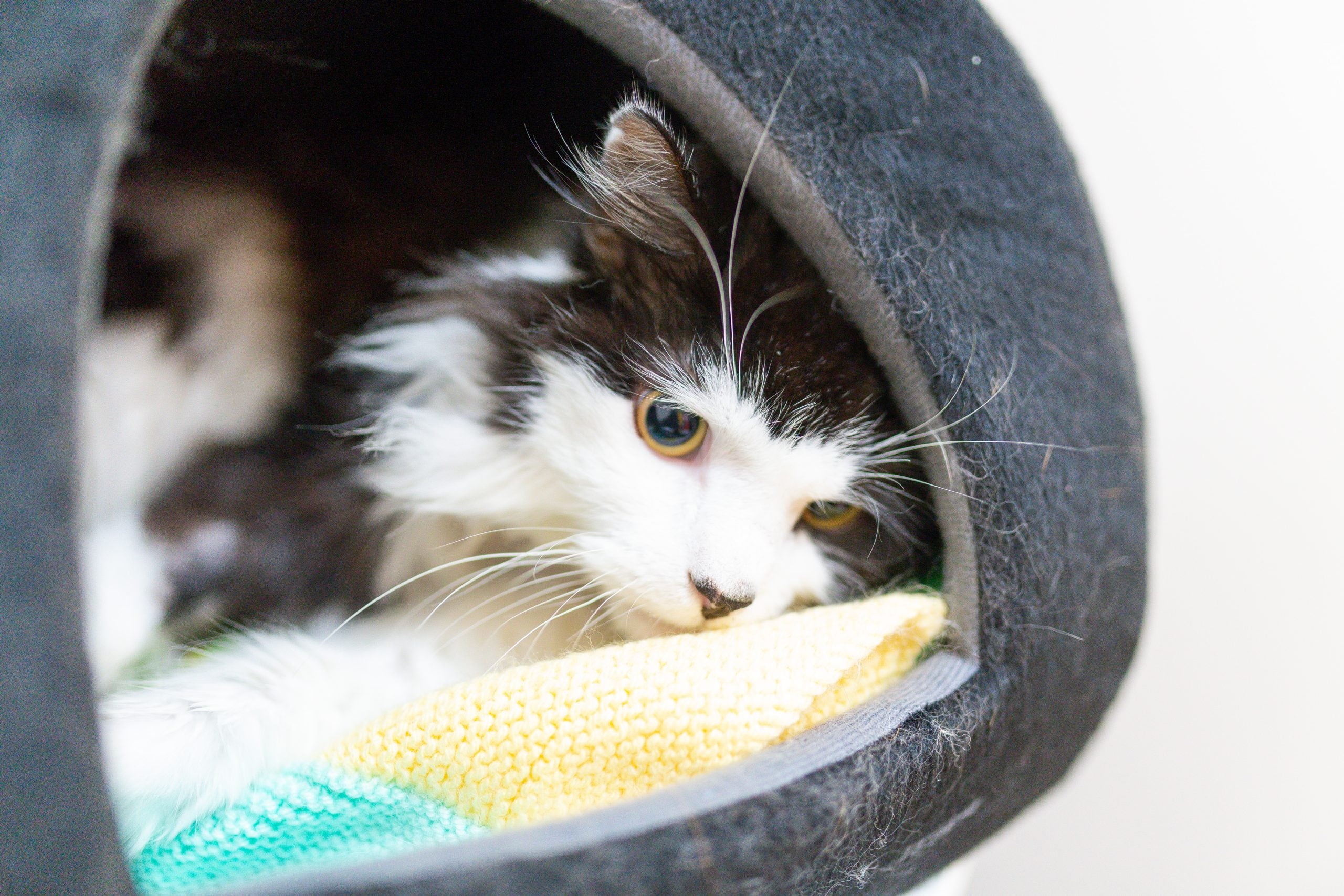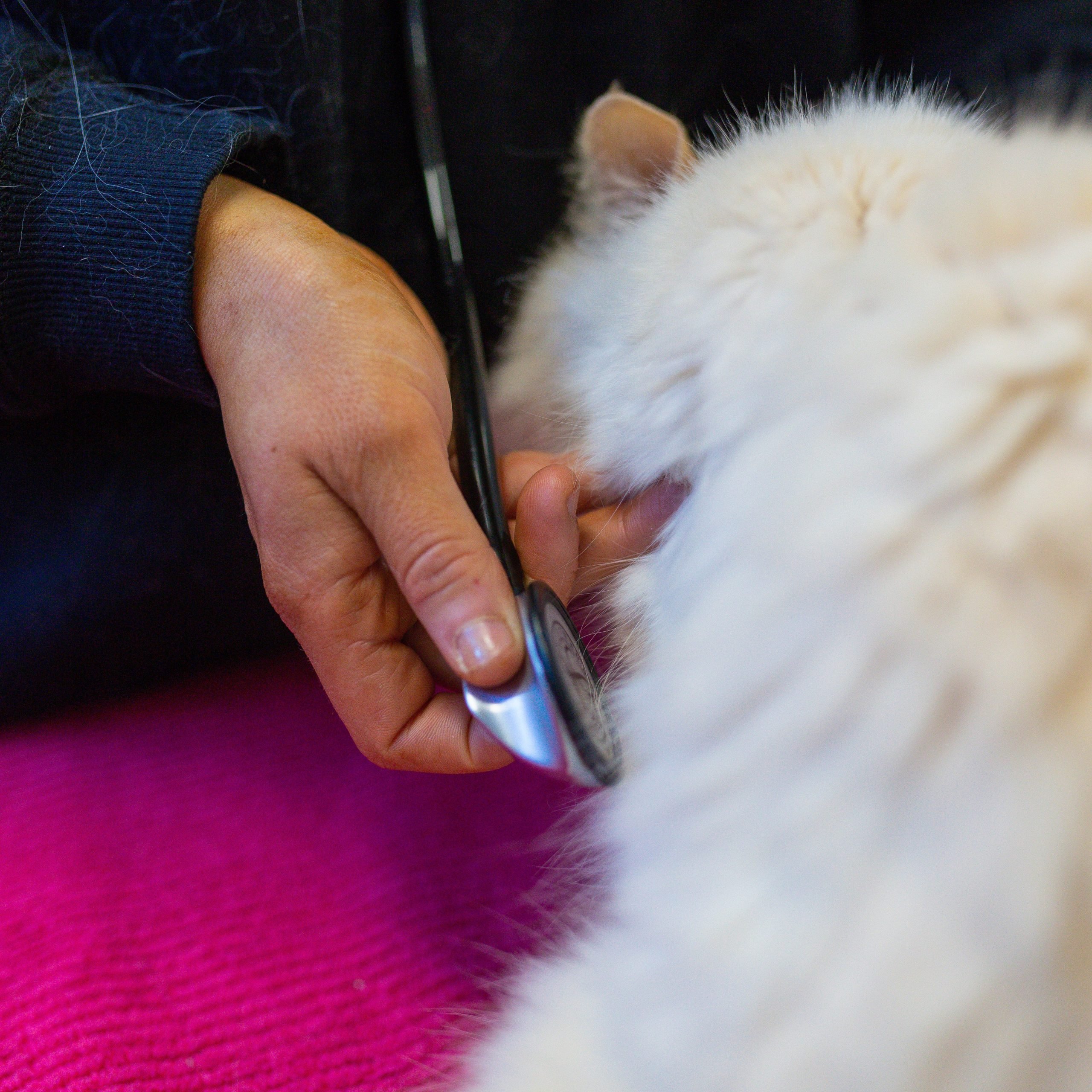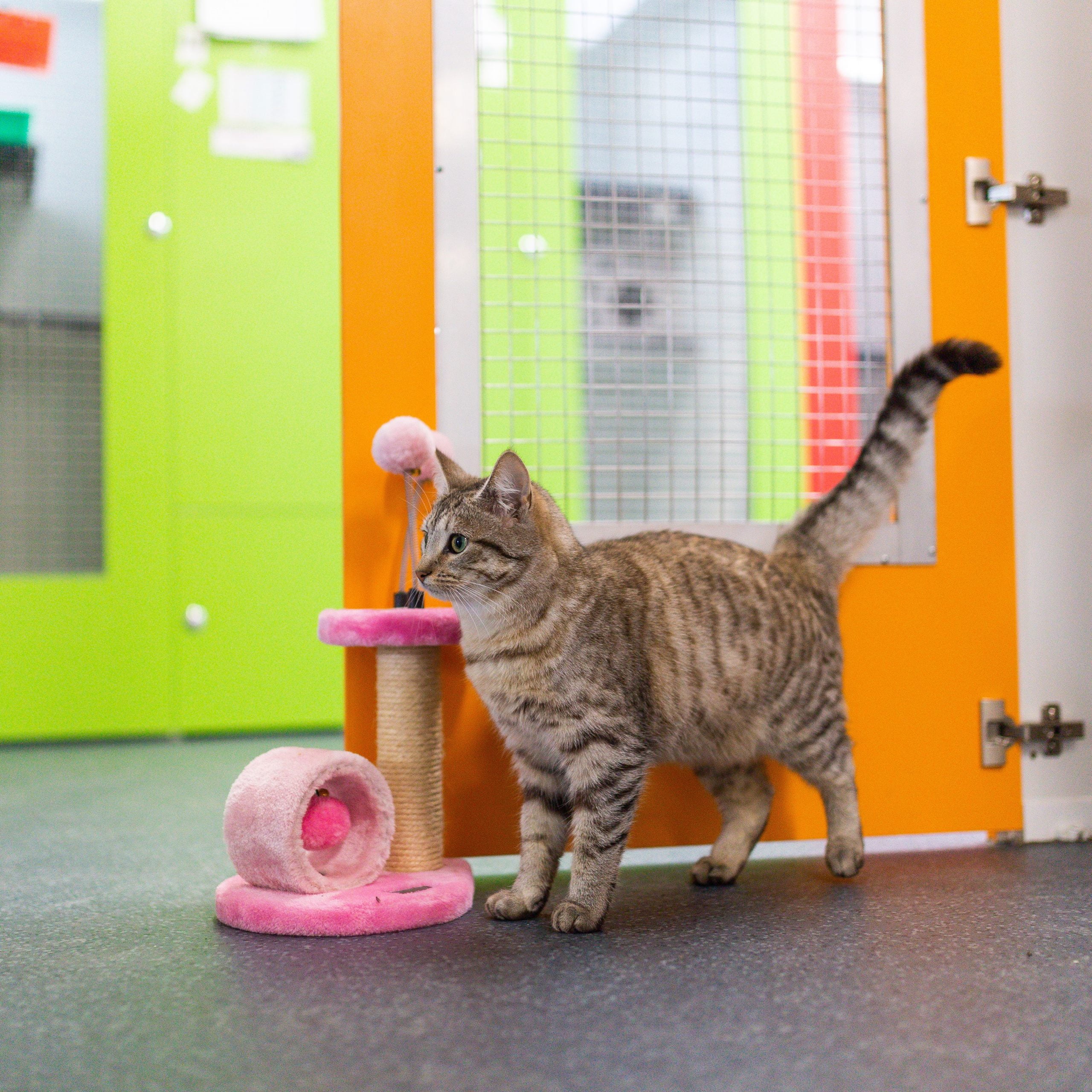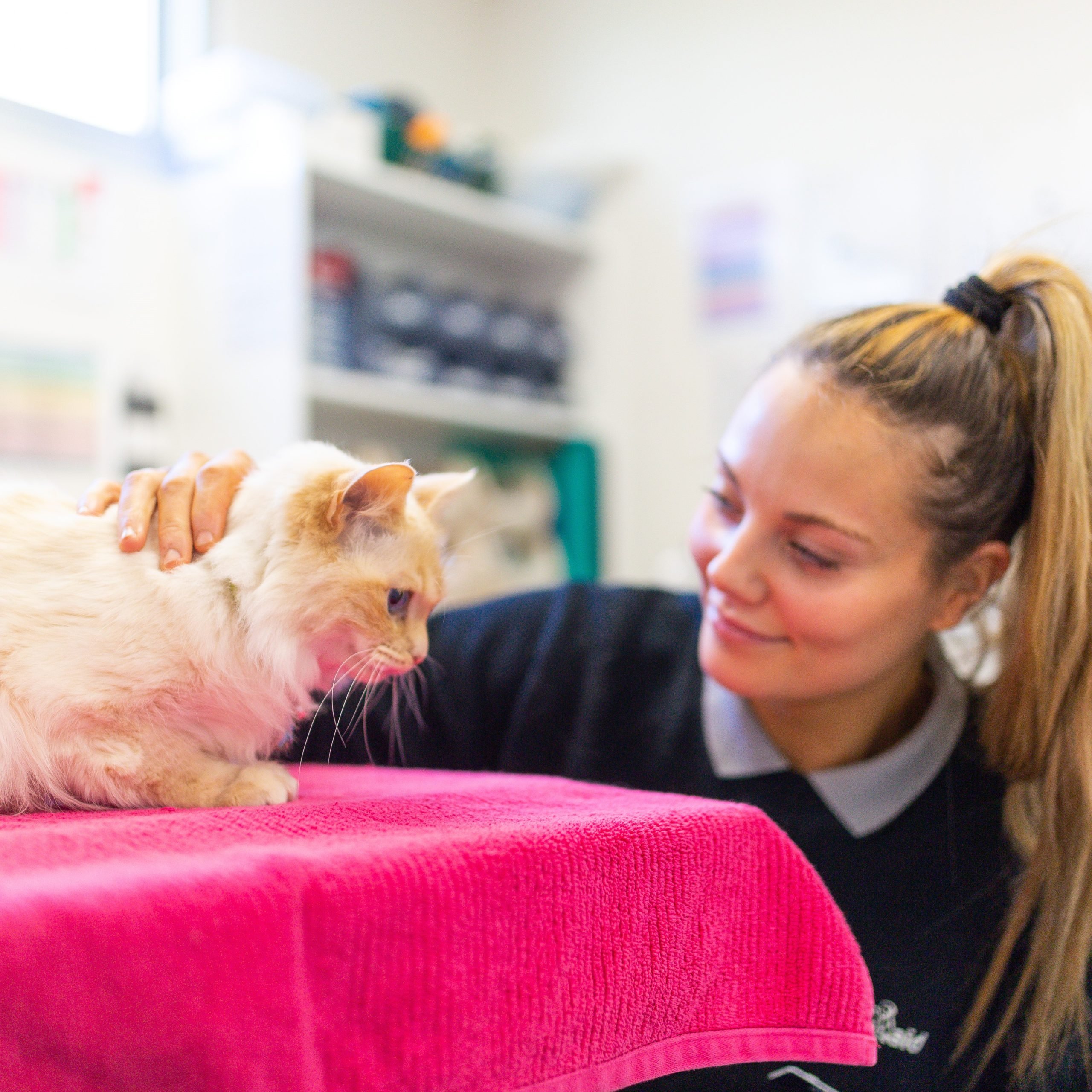
The prevalence of FIV in Australia is high. With the increase of stray cats comes an increase of FIV in our shelter.
Cats with FIV are often overlooked due and take longer to adopt.
But we know from experience they have just as much love to give.
We have taken your most frequently asked questions about FIV and put them to our experts, Veterinary Director Dr. Nico Maritz and Cattery Manager Sue Marshall.
What is FIV?
Feline immunodeficiency virus (FIV) is one of the most common and consequential infectious diseases of cats.
“Cats with FIV can live in good health for years,” says Veterinary Director Dr. Nico Maritz, “FIV attacks a cats immune system, so they will have a compromised immune system and are more susceptible to illness.”
There is no cure for FIV, but recent studies suggest that cats with FIV commonly live average life spans.
What is the prevalence?
FIV can be found worldwide, but sadly the prevalence in Australia is particularly high. Studies have shown between 7% and 32% of Aussie cats are FIV positive.
The prevalence for us in Victoria is around 15% of cats have FIV,” says Dr. Maritz, “That is quite a high risk.”
Can I have an FIV cat and non-FIV cat live together?
The good news is yes, they can! But there will always be a risk of infection to your non-FIV cat.
“FIV and non-FIV cats can live together. You can get your non-FIV cat vaccinated,” says Cattery Manager Sue Marshall, “This is some protection but not complete protection.”
“FIV is usually transmitted by a deep bite, some studies suggest the chance of your non FIV contracting FIV is as low as 3%, but it is still a risk the owner must be aware of.”
Can I get a cat vaccinated for FIV?
There is a vaccine available for FIV, it offers some protection, up to 80%.
“FIV is usually spread by deep bite wounds,” says Dr. Nico, “Even if your cat only spends half an hour outside a day, there is a risk to them, and so we do recommend the vaccine.”
What extra care does an FIV cat need?
FIV cats don’t require any special medication or attention while they are healthy.
“Like any other cat they need yearly vet checks and vaccinations,” says Sue, “They do have a reduced immune system, so they need to be kept indoors. If they do get cat flu or any infections, it does take them longer to recover and they may need antibiotics to help.”
How can the community help reduce the spread of FIV?
The key to reducing FIV in the community is to de-sex and contain your cats.
“We find the majority (if not all) of the FIV cats we get are entire males who have been out fighting for the love of the ladies,” says Sue.
“These males can also pass on FIV to any females they mate with – therefore possibly passing on FIV not only to Mum but the entire litter. You cannot test for FIV until the cat is at least 6 months old.”
“If these males were de-sexed they would be less likely to fight and if they were contained this would almost eradicate FIV from the community.”
To speak to our Veterinary Team about FIV testing or vaccination please visit our website.




